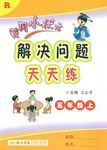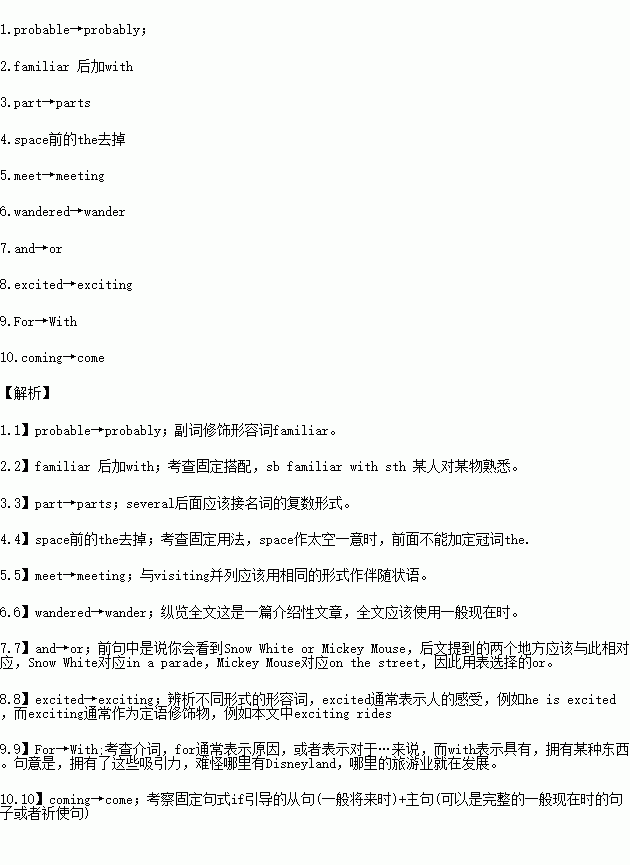题目内容
短文改错
假定英语课上老师要求同桌之间交换修改作文,请你修改你同桌写的以下作文。文中共有10处错误,每句中最多有两处。每处仅涉及一个单词的增加、删除或修改。
增加:在缺词处加一个漏词符号(∧),并在其下面写出该加的词。
删除:把多余的词用斜线(\)划掉。
修改:在错的词下划一横线(___),并在该词下面写出修改后的词。
注意:1.每处错误及修改均仅限一词;
2.只允许修改10处,多者(从第11处起)不计分。
The theme park you are probable most familiar is Disneyland. It can be found in several part of the world. It will bring you into a magical world and make your dreams come true, whether you are travelling through the space, visiting a pirate ship or meet your favorite fairy tale or Disney cartoon character. As you wandered around the fantasy amusement park, you may see Snow White or Mickey Mouse in a parade and on the street. Of course, Disneyland also has many excited rides, from giant swinging ships to terrifying free-fall drops. For all these attractions, no wonder tourism is increasing wherever there is a Disneyland. If you want to have fun, coming to Disneyland!
 黄冈小状元解决问题天天练系列答案
黄冈小状元解决问题天天练系列答案 三点一测快乐周计划系列答案
三点一测快乐周计划系列答案
